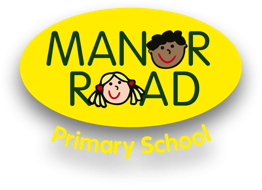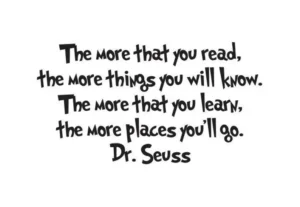English – Reading
Reading End Points Manor Road Reading Progression and End Points
Reading book progression per year group: Reading book progression 2022 NEW November
Reading
Intent
At Manor Road we aim to develop a love and enjoyment of reading. We believe that every child is a reader and reading is at the heart of everything.
Our reading curriculum strives to foster a lifelong love of reading. We cultivate the behaviours that they will need to be discerning readers as they read frequently and widely using self-regulation strategies and discuss what they read. This curriculum is delivered through synthetic phonics, a linked approach to shared and guided reading, home reading, reading across the curriculum, regular opportunities for independent reading and hearing quality texts read aloud every day. All of these are essential components as they offer the range of opportunities needed to develop fluent, enthusiastic and critical readers.
We are committed to ensuring that reading is at the very heart of the curriculum, not only giving children opportunities to read in English but in all areas of the curriculum.
Implementation
Learning to read is one of the most important things a child will ever learn. It underpins everything else, so we believe in putting as much energy as we possibly can into making sure that every single child learns to read as quickly as possible. We also want our children to develop a real love of reading and to want to read for themselves. This is why we work hard to make sure children develop a love of books as well as simply learning to read.
We start teaching phonics in Pre-School/Reception and follow the Bug Club Phonics scheme(see phonics tab) , which ensures children build on their growing knowledge of the alphabetic code, mastering phonics to read and spell as they move through school.
As a result, all our children are able to tackle any unfamiliar words as they read. We have a strong focus on language development for our children because we know that speaking and listening are crucial skills for reading and writing in all subjects. Alongside quality Guided Reading sessions in both KS1 &KS2, we expose children to a wide variety of genres and quality texts using Jane Considine’s The Write Stuff as a guide for our writing sessions. These sessions have a big focus on widening children’s vocabulary.
Guided Reading sessions in Year 2 – Year 6 are whole class and they support pupils to be expert readers by developing the key skills of; clarifying, questioning, explaining, retrieval, summarising and predicting.
Phonics and reading activities are taught as a whole class. Discreet phonic sessions take place daily for 20 minutes and there are opportunities for children to access personalised phonic sessions in the afternoon if needed.
Teachers regularly read with the children so the children get to know and love all sorts of stories, poetry and information books. This is in addition to the books that they bring home. This helps to extend children’s vocabulary and comprehension, as well as supporting their writing. All classrooms have attractive book corners where the children can access a wide range of books, both fiction and non fiction to help embed their love of books, stories and reading.
Once children are more competent readers and secure on Phase 5/6 we move on to colour coded book banded reading books. All children are also given the opportunity to read and take a book home of their choice from the class and school library. This starts in our Pre-School to encourage a love of reading from an early age.
Reading Records are used to record children’s reading from Pre-School. They are signed by an adult before changing and children are encouraged to write in their own records to develop independence. In EYFS, books are changed on a Monday, Wednesday and a Friday. In Year 1, books are changed as frequently as the child wishes as long as the child can share their understanding and the fluency has been mastered with their book. In Year 2, children are encouraged to change their own books in preparation for KS2. In KS2, children keep a record of their reading and this is then checked by an adult in school.
We read with the children weekly and more frequently if needed. Online reading platforms and eBooks (Bug Club) make it easier for parents to access a range of books and games online as well as having a paper book.
Please use the following as a guide for completing records at home.
- Children to write the date and current page number each time they read.
- Children make detailed comments about their book at least once a week. (Age related comments)
- Evidence that books are being read daily. This may be independent or with an adult.
- Neatly presented and accurately written comments from children when discussing their books.
- Star ratings and activities completed.
Impact
Children’s progress in phonics is continually reviewed through daily informal and half termly formal phonic assessments and evidence from their reading and writing.
Assessment is used to monitor progress and to identify any child needing additional support as soon as they need it.
Statutory assessment
- Children in Year 1 sit the Phonics Screening Check. Any child not passing the check re-sits it in Year 2.
Ongoing assessment for catch-up
Children in Year 2 to 6 are assessed continually and through their teacher’s ongoing formative assessment using the Phonics Tracker and interventions implemented as appropriate.
Reading in KS2 is assessed regularly using the whole school reading targets (see class targets) and next steps made appropriately.
Use these reading prompts and activities to help your child complete their Reading Record.
[263420]Bug_Club_Parent_Information
HELP-YOUR-CHILD-DEVELOP-READING-SKILLS
KS1-Reading-Prompt-Booklet-2019
KS2-Reading-Prompt-Booklet-2019

